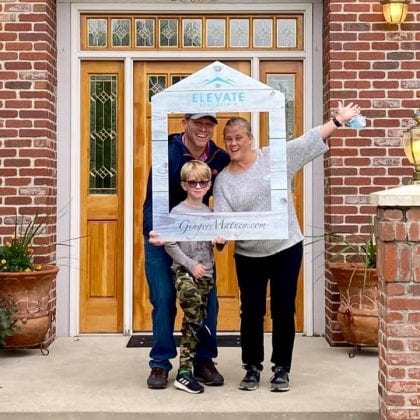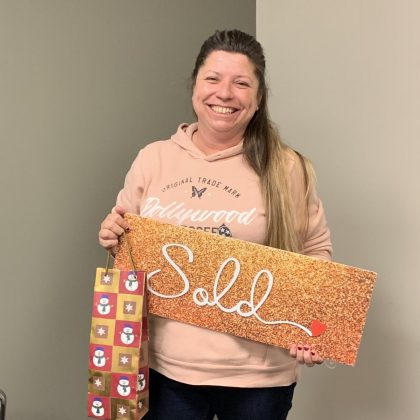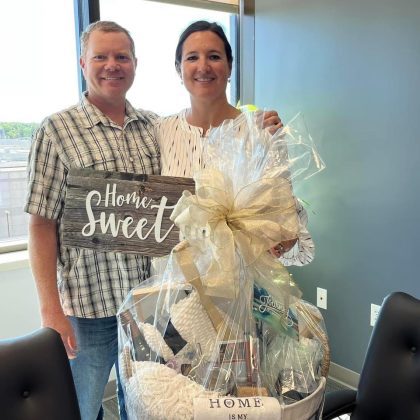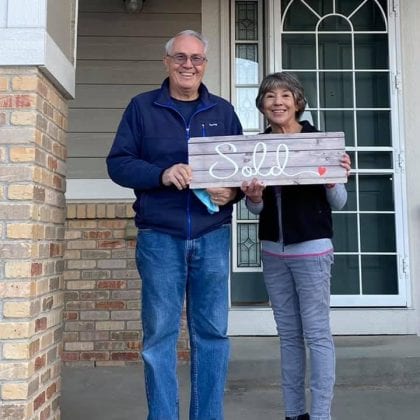Types of Loans
There are a variety of mortgage programs available today. They range from easy-qualifying loans for first-time buyers to more sophisticated products that can work for unconventional or financially diverse buyers.
There are three main categories:
- Conventional – typically for borrowers able to pay 20% down, or those who can qualify for PMI (Private Mortgage Insurance). Some programs of 5-20% down are available with the additional requirement of PMI
- FHA (Federal Housing Administration) – is a loan requiring only 3.5% down, insured from default by HUD (Housing and Urban Development). Your total housing expenses and monthly debt cannot exceed 41% of your gross monthly income, but the down payment can be borrowed funds or a gift. Borrowers must have mortgage insurance which protects the lender in the case of default. FHA loans require two mortgage insurance payments: an upfront fee and a monthly fee until the loan hits 20% down OR you refinance to a conventional loan.
(Side note: If an FHA loan goes “bad” or is foreclosed, HUD then buys out the underlying lender, and puts the home on the market to resell. This is where a HUD home comes from when you are buying.) - Veteran’s Administration (VA) – is a no-money-down program offered exclusively to veterans. There is no mortgage insurance, but there is a one-time funding fee. A borrower must be a veteran and provide a certificate of eligibility. Qualification is based on net income, family size, and a provision for utilities and maintenance. Total housing and all other debt cannot exceed 41% of gross monthly income. But $100% LTV (*loan-to-value) is available and the funding fee may also be added to the loan balance and borrowed.
All three loan types are available in varying terms from 5 to 40 years, with 30 years being the most common length. Within those three categories, loans have various options such as fixed-interest or adjustable rates (ARM). There may also be a buy-down option or a balloon payment. For example, you could have a 30-year fixed-rate conventional loan that requires 20% down. Alternatively, you could have an FHA 30-year fixed loan that requires only 3.5% down. See the next few pages for more details.
Other Financing Types
- CHFA is an option available for first-time buyers, who must take a class to qualify. Applicants need funds of $1,000 to obtain an underlying FHA loan. In this case, the buyer obtains a down payment of 3.5%, less the required $1,000 down, in the form of a loan that is paid back when the property is resold. More info is on www.chfainfo.com
- CDP or Community Development Programs are offered in some areas, ask your lender for more information.
- A Hard Money Loan is basically a private loan. While it does not hold borrowers to conventional standards and can allow for “thinking outside the box” for qualifying purposes, interest rates are typically much higher than conventional programs
Loan Options
- Fixed-Rate is where the interest rate remains fixed, or unchanged, during the term of the loan. So if your interest rate is 5% fixed, then it will remain 5% for every payment for 30 years.
- Adjustable-Rate (ARM) is when the interest rate changes over time-based on the market. It typically has an initial “locked period” of 3-5 years and then adjusts based on the market for the remainder of the term. It typically adjusts on a yearly basis and has yearly caps, both up and down. The advantage is that if rates are currently low, an ARM is even lower. The disadvantage is that your loan can go up over time so while you may start at 5%, you may end up at 10% (capped) if rates continue to rise.
- A Balloon Payment is where a loan is amortized over a period of time, say 30 years, and your payment amount is based on that term, but the balance is due after a set term, for example, 10 years.
- Buy-Down Option is where you pay an upfront fee, typically .25% to 1% in order to get a reduced interest rate for the life of the loan. This option usually makes the most sense if you intend to keep the property for a long time. If you think you may sell in a few years, it’s usually not worth it.
- Interest Rate Lock-in is what you need to do in order to keep the rate the lender quotes you. They “lock” the rate, so that if the market fluctuates, your rate does not climb up during the time that you are fulfilling the contingencies of the contract. You typically can choose a 15-, 30-, or 45-day lock. If you fail to close on the property, there is not usually a penalty. If during the time you are locked, interest rates go down, you can typically “float down” once during that lock without a penalty. However, if they go up, your lower locked rate is protected from changing.
Are All Loans Created Equal?
No, they are not. Be sure to shop around for the best rate, and more importantly, the best terms. Remember the compare apples to apples. The best way to do this is by using a GFE (Good Faith Estimate, also known now as a Closing Disclosure Statement) from each lender, for EACH loan program you are considering. This form takes into consideration the interest rate of the note and underlying costs and compares each loan using the APR (Annual Percentage Rate). It’s the best way to compare apples to apples!
What’s the Difference between a Lender, Mortgage Broker, Bank, or Credit Union?
First off a loan originator is someone who takes your information down on an application and shops around to programs to see which will work for you. This can be a loan broker, a lender, or a bank. A lender or bank just offers their own loan programs. (*Though most must still qualify under Fannie Mae or Freddie Mac guidelines for resale on the secondary market. Ask us for more information on this if you are interested). A credit union is simply a private bank. All lenders have access to different programs, so it pays to shop around. A mortgage broker has access to the greatest number of loan programs, so sometimes that is your best bet for shopping around with as little effort as possible.
One Question to Ask a Potential Lender: Do You Have “In-House Underwriting”?
In-house underwriting is when the people that make the final decision on your loan and its process are in the same building as the loan officer or lender. This is VERY important if you have anything that is “outside the box”, unconventional, or simply needs an explanation. Some underwriters are in different states, and have no connection to the person who takes the loan application.
Mortgage Closing Costs
Your mortgage closing costs include everything, from a credit application fee and appraisal to title insurance for the lender (this is different from what the seller buys for you) and various other fees. Basically it’s a LOT of little, and some big charges that it costs you to borrow money. It’s best to think of these fees in one lump sum of 2-3% of your loan amount rather than to feel nickel-and-dimed while looking at all of the little fees. You may have a loan origination fee, an application fee, a closing fee, plus many more. Shop around to compare all of the fees to be sure you are getting the best deal possible.
Free mortgage guide: Home Mortgage Alliance-Shopping for your Home Loan
Find out more: Consult our Glossary






